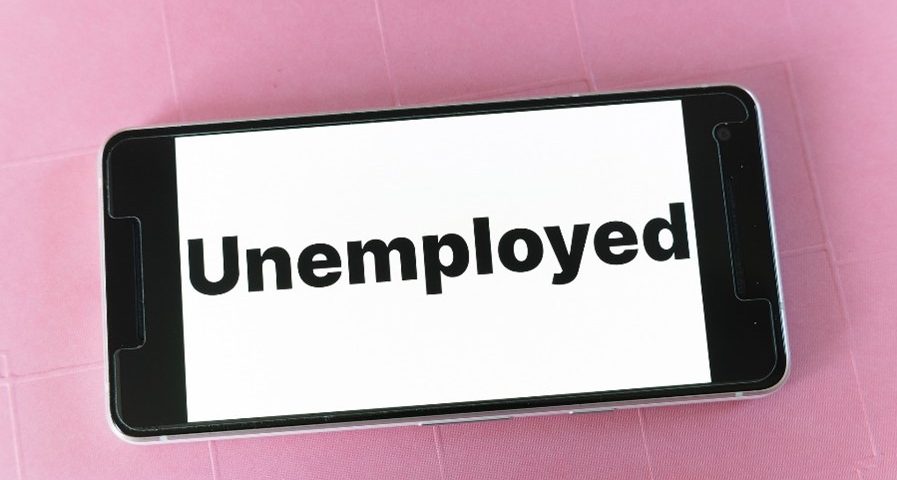- Hyderally & Associates P.C | Employment Lawyers NJ, NY
- (973) 509-8500
- tyh@employmentlit.com
New Jersey Lawmakers Approve Revised Law Enhancing Unemployment Process

NLRB Affirms that Employers Cannot Bypass Union During Contract Negotiations
November 7, 2022
Proposed Modifications to the Implications of Drug Testing of Employees
November 21, 2022By: Ty Hyderally, Esq. and Francine Foner, Esq.
This past June, New Jersey lawmakers unanimously passed a law with bi-partisan support, Senate Bill S2357 (A3830), intended to make the unemployment process fairer for employees. (https://www.employmentlit.com/2022/07/13/nj-lawmakers-unanimously-support-measure-making-unemployment-process-fairer-for-employees/). On September 22, 2022, Governor Murphy conditionally vetoed the measure, offering recommended revisions which would make the law acceptable to the Governor. On November 3, 2022, the Assembly approved the bill, with Governor Murphy’s recommended revisions.
Many New Jersey employees have received and continue to receive demands from the New Jersey Division of Unemployment Insurance (“Division”) to repay pandemic-related benefits, even if through no fault of their own. The Division was overwhelmed by the sheer volume of claims during the pandemic, which led to agency errors and/or simply lacking the resources to sufficiently review all claims. Unfortunately, for many, if not most, employees who received PUA benefits, those benefits have long been spent, and repayment would impose an undue hardship upon them.
In February 2022, after the federal government updated its guidance on pandemic-related unemployment benefits, the New Jersey Department of Labor (“NJDOL”) afforded some relief to victims of this unemployment chaos, under certain circumstances. However, there remain many recipients of PUA benefits who remain liable for repayment of non-fraudulent unemployment benefits they received.
The new law aims to rectify these issues. However, because the United States Department of Labor (“USDOL”) advised Governor Murphy that some of the provisions of the original version of the bill were inconsistent with federal unemployment law, including the Coronavirus Aid, Relief, and Economic Security (“CARES”) Act, Governor Murphy returned to the Senate Committee a proposed Substitute of Senate Bill No. 2357, with his recommendations for reconsideration.
As Governor Murphy observed in his accompanying statement, as with the original version, the revised law “makes certain changes to the administration of the State’s unemployment insurance (“UI”) system to increase the system’s efficiency and expedite timely benefits payments.” Among other things, the bill mandates enhanced information sharing among [the Division], New Jersey employers, and claimants, requires that information be shared among the parties via electronic means (other than in limited circumstances as described below), and “imposes penalties on employers who fail to promptly provide the Division with the requisite information.”
In addition, as the original version required, the revised version of the law modifies the unemployment claim and appeal process to make it easier for claimants to speak with a representative of the Division about their claim or appeal, including the requirement that available appointment times to speak with a representative to be “clearly and prominently” displayed. Further, as did the original version of the proposed law, the revised bill would require the Division to provide a claimant with any information it has received from their employer, and an opportunity to respond to that information.
The recommendations also do not impact the original bill’s requirement that a claimant whose benefit is reduced as a result of an appeal is not liable to repay the overpayment when the claimant is not at fault. Similarly, the revised bill “requires a claimant to be paid any benefits withheld pending an appeal of a determination that a claimant is disqualified, if the claimant is ultimately determined to be eligible to receive UI.”
As Governor Murphy stated in his introduction to this substitute bill, “I commend the bill’s sponsors for their dedication to improving our State’s UI system. The revisions contained in the bill will promote a more expeditious review of unemployment claims and ensure a reliable and transparent process for all involved. In particular, the provisions protecting claimants from overpayment repayment will restore confidence that claimants acting in good faith can rely on the Division’s determinations and use their benefits without fear of a reversal.”
In order to ensure that the New Jersey law is consistent with the CARES Act and other federal unemployment law, Governor Murphy’s recommended revisions to the bill include:
- Authorizing the Division to permit an employer to communicate information with the Division by methods other than electronic communication in those limited circumstances where an employer has demonstrated an inability to communication electronically; and
- Clarifying that overpayments paid under federal CARES Act programs may only be waived if the Division determines that both (1) the overpayment was not the fault of the claimant and (2) repayment would be contrary to equity and good conscience; and
- Specifying that benefits may not be paid to a claimant for any week during which the claimant has failed to provide to the division a weekly certification evidencing the claimant’s eligibility for benefits.
In addition to the recommended changes to the law in order for it to conform with the CARES Act and other federal unemployment law, Governor Murphy further recommended, at the request of the USDOL, that the Division be given additional time to implement the law “in order to ensure a seamless transition to the enhanced system.” Thus, while the original version of the proposed law provided that it was to take effect 120 days following its enactment, the revised bill extends that time to 270 days following its enactment, with all administrative measures necessary to implement the law to be completed prior to the effective date.
As the revised law incorporates Governor Murphy’s proposed recommendations, it is likely that Governor Murphy will sign the bill into law in the near future. The new law will help New Jersey workers in need of relief from unjust demands for repayment of non-fraudulent benefits, as well as make unemployment procedures more equitable for all employees going forward.
En nuestra firma hablamos español. This blog is for informational purposes only. It does not constitute legal advice, and may not reasonably be relied upon as such. If you face a legal issue, you should consult a qualified attorney for independent legal advice with regard to your particular set of facts. This blog may constitute attorney advertising. This blog is not intended to communicate with anyone in a state or other jurisdiction where such a blog may fail to comply with all laws and ethical rules of that state of jurisdiction.


